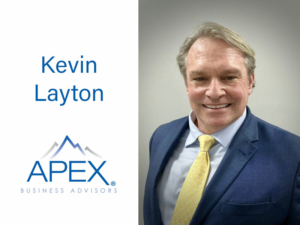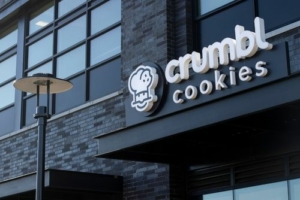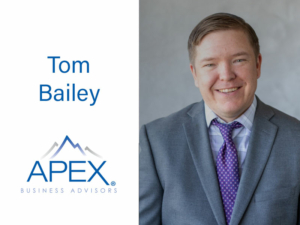 When prepping your business to sell, many things can impact its value and the ultimate transaction. Real estate is one of them — when you sell a business, most of the time you either sell the property where it’s housed, or you lease it.
When prepping your business to sell, many things can impact its value and the ultimate transaction. Real estate is one of them — when you sell a business, most of the time you either sell the property where it’s housed, or you lease it.
Like a myriad of other things to consider when selling, coming up with an accurate valuation of the real estate connected to your business could make or break a deal. Let’s take a closer look at the implications so you can be better prepared to sell.
Real Estate in Business
Rent is usually a term that’s used to describe the cost of real estate. This includes the base cost — either rent or a mortgage including the principal and interest — as well as insurance, real estate taxes, and maintenance and repairs on the property. That’s why it’s so important to consider the true real estate costs; it isn’t just the rent or mortgage on its own.
When buyers go through your P&L and they see a line item for rent, they need to dive into what actually makes up that rent. The maintenance, taxes, and insurance could fall into a completely different tax return.
For example, let’s say the owner of the business is called AK Enterprises LLC, and the owner of the property is AK Properties LLC — AK Enterprises may just be paying rent, but there are maintenance costs, taxes, insurance, and the like that may fall to AK Properties instead. Determining those specifics is key, as you need to make sure that you capture all of the costs that a buyer would be responsible for paying.
This information is critical for financing. The buyer has to go to their bank and show them their pro forma which indicates everything they’ll assume when they buy your business. That pro forma needs to include the rent or mortgage payment, but it also needs to show those other costs for the bank to issue the correct loan amount.
Little costs add up, especially in the eyes of the buyer, so you must be honest about them up front or the deal could crumble at the last hour.
Real Estate in Real Life
A few years ago we were working with a seller on listing their business. When we initially met with them, they gave us a specific rent number that they wanted to charge the buyer. For the sake of this story, let’s say it was $6,000 per month.
On the day of the deal, they presented a triple net lease that took that $6k a month and increased it to between $7,200 and $8,400 a month. This of course changed the cash flow of the deal and changed the ability of that business to make a profit and still be able to pay for the new rent.
Now that the seller decided to increase an expense, something else had to give for the deal to work out. Due to that slight change, the value of the business went down, just because the owner wanted to charge more in rent.
The value of the real estate of your business is ultimately dependent on the buyer’s ability to support the cost of that real estate. And if the seller can’t support the cost of renting or buying, then they may try to strike a new deal and buy the business but not the locale.
This wouldn’t be the end of the world — or necessarily the deal — but it would certainly change what your exit may look like.
Highest and Best Use
The concept of highest and best use can also impact the value of a building.
Sometimes a business may be in a building or locale that no longer makes sense for them. That means they aren’t getting the “highest and best use” out of their location. Over the years, the location may have evolved to a point where another business could occupy and generate more revenue. In that case, they should move somewhere else where they can have a lower occupancy cost and sell the location to someone who could generate a higher return.
We run into this a lot with lawn and landscape businesses. They open up shop in a rural community, and as time goes on and suburbs have encroached, the location no longer makes sense for them — or a new buyer. Again, in this case, the seller would be better off selling the business separately from the location. The business could be worth $400,000, but the land it’s sitting on could be worth $2 million. The choice is obvious: sell the real estate, monetize some of that wealth to relocate the business, and then sell that one day too.
There are several other ways real estate can impact a deal. Another, in particular, is when an owner of the business also owns the building and they don’t charge themselves rent. The new buyer will have to pay a rent payment that the current owner doesn’t. Regardless of the value of the business, they’re automatically going to have a few thousand dollars worth of negative cash flow per year when compared to the previous owner.
Ultimately, real estate can complicate even the simplest of deals. If you’re unsure of how yours may impact a sale, it’s crucial to be honest about your current costs and how they may impact a future buyer when you perform a valuation.
Because frankly, it does impact value significantly.
If you don’t know where to start, we’re here to help. Contact us today and we’ll evaluate the implications of your real estate and how they may affect a future sale.

 Kevin Layton was an entrepreneur from an early age. At 17 he had a letter of intent and was doing diligence on a dairy operation in Central, PA not too long after he got accepted to Penn State in Dairy Science. The more he learned about business the more he couldn’t make the math work to buy the herd and then farmland on the limited earnings the dairy business supplied.
Kevin Layton was an entrepreneur from an early age. At 17 he had a letter of intent and was doing diligence on a dairy operation in Central, PA not too long after he got accepted to Penn State in Dairy Science. The more he learned about business the more he couldn’t make the math work to buy the herd and then farmland on the limited earnings the dairy business supplied.
 Tom Bailey, like several other brokers on our team, grew up on a farm and hence developed a great love for the outdoors. One particular aspect of the outdoors that Tom was drawn to were the waterways of America. He’s kayaked the whole Missouri River and has also kayaked all the way down to the Gulf of Mexico.
Tom Bailey, like several other brokers on our team, grew up on a farm and hence developed a great love for the outdoors. One particular aspect of the outdoors that Tom was drawn to were the waterways of America. He’s kayaked the whole Missouri River and has also kayaked all the way down to the Gulf of Mexico. When prepping your business to sell, many things can impact its value and the ultimate transaction.
When prepping your business to sell, many things can impact its value and the ultimate transaction. 